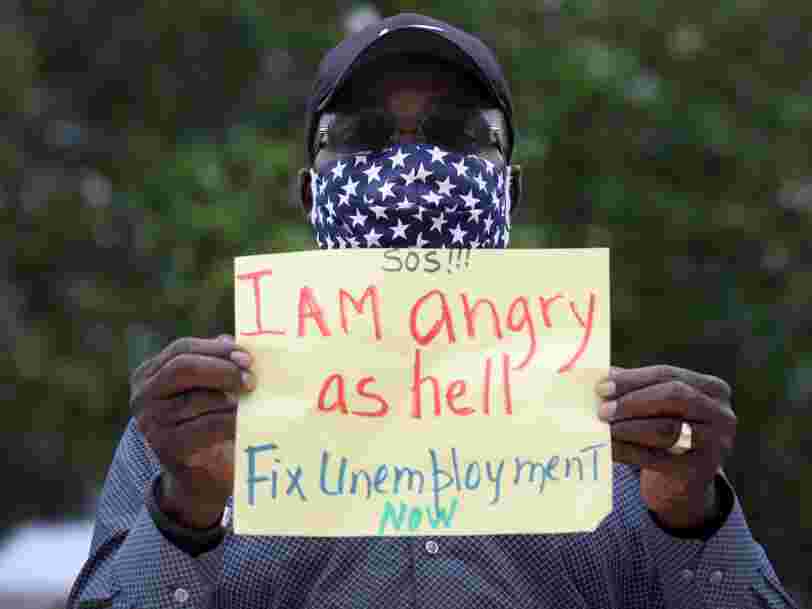Cuts to COVID-era unemployment benefits will lower US incomes by nearly $145 billion, according to economic think tank
Taiyler Simone Mitchell,Juliana Kaplan | Publié le
- Economic Policy Institute said the expiration of unemployment benefits will impact over 10 million workers.
- The cuts will also result in a $79.2 billion decrease in consumer spending.
- Cutting the payments will negatively impact marginalized communities and increase poverty.
- See more stories on Insider's business page .
In early September, the Biden administration let federal pandemic-era unemployment benefits lapse for millions of Americans as the Delta variant surged.
Bloomberg reports that workers haven't come rushing back after benefits wound down, as some experts anticipated. But early research has shown that ending benefits could strike a big economic blow for both jobless Americans and their states' economies.
Now, a new report from the left-leaning Economic Policy Institute (EPI) shows just how much could be at stake.
The government's decision to let unemployment benefits expire in September will result in a $144.3 billion decrease in annual income and a $79.2 billion decrease in consumer spending, according to EPI.
The average annual decrease in income from unemployment insurance cuts is $13,728 per person, and the average annual decrease in spending is $7,450, according to EPI.
Those figures come from an annualized analysis of research that looked at the economic impact of cutting off benefits early. Throughout the summer, 26 states - 25 of which are GOP-led - opted out of federal benefits early. Researchers from the University of Massachusetts Amherst, Harvard University, Columbia University, and the University of Toronto found that in the 19 states they analyzed, spending plunged.
They found that that the loss of UI benefits at the state level resulted in recipients of UI spending about $145 less per week. For every dollar in benefits lost, spending dropped by $0.52. That added up to a $2 billion drop in spending across all of those states.
At the start of the pandemic, the federal government expanded both the size and scope of unemployment insurance. Pandemic Unemployment Assistance (PUA) made gig workers and freelancers newly eligible, among others; a separate EPI analysis found that PUA made up the greatest share of federal UI distributed in 2020. The government beefed up benefits in the form of an additional $600 weekly, which would later become a $300 benefit.
The enhanced unemployment benefits - alongside stimulus checks - helped keep some Americans out of poverty. As Insider's Madison Hoff reported , the US Census Bureau found that the official poverty rate rose by 1% in 2020. But the Supplemental Poverty Measure (SPM), which tracks income from programs like unemployment and stimulus, found those programs actually drove down poverty by 2.6%.
However, the expiration of unemployment programs was more likely to leave Americans of color behind, according to the EPI report. They cite Census Bureau data that found that workers of color were more likely to receive UI benefits than their white counterparts.
"If you get rid of the pandemic extended unemployment program, that's like half the Black workers by definition aren't going to be eligible to get any benefits," Dr. William Spriggs, an economics professor at Howard University and the chief economist for the AFL-CIO, previously told Insider .
EPI said that cutting the payments will negatively impact marginalized communities and increase poverty - especially in areas with higher minority populations which often have stricter unemployment benefits.
Some experts and jobless Americans argued that benefits were ending too early; Rep. Alexandria Ocasio-Cortez has introduced a bill that would restore benefits through February 2022 and pay them out retroactively to September 6.
Even so, the Biden administration affirmed in August that benefits would come to a close in September - although states could continue paying out benefits on their own or give impacted residents relief payments . But no state said it would continue benefits.
Via PakApNews